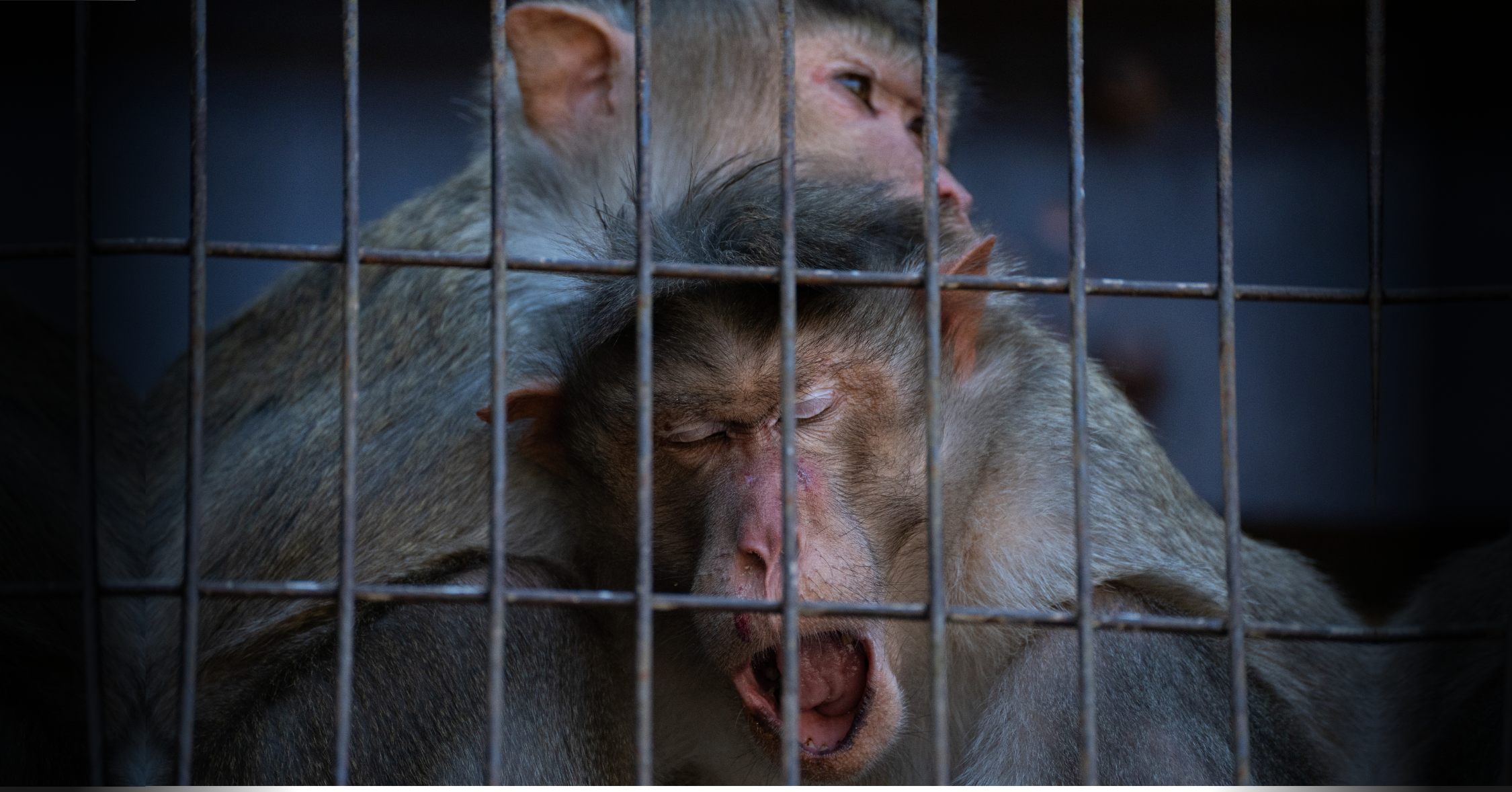
As concerns over nonhuman primate smuggling into US labs have come into focus, a commonly cited source of apprehension has been whether trafficked wild macaques can serve as research “models” for humans given, e.g., their unknown histories. (This concern actually grounds one of the purported reasons for seeking to ramp up the US’ domestic breeding of nonhuman primates for research.)
What’s almost always missing, however, is consideration for the macaques themselves irrespective of their origin.
Rather than only asking whether it’s better for humans to exploit macaques kidnapped from the wild or those “purpose-bred” to serve as human test subjects, we must start asking whether humans should subject any other-than-human animal to exploitation.
Our broaching of this question is all-the-more important in the face of the animal research industry’s vigorous avoidance of it.
Animal researchers don’t want to talk about (or, really, don’t want us to talk about) the source of their sentient experimental subjects, much less their use.
And, it’s their use that should form the crux of our unease, because, no matter how they find their way into laboratory cages, other-than-human animals are victims of ethically irredeemable conduct that results in tremendous suffering.
As Garet Lahvis – scientist, academic, and former animal researcher – writes in his remarkable new article – “lab monkeys express behaviors that suggest psychological trauma” and may well “go insane with boredom”. They self-mutilate. They demonstrate “‘floating limb behaviors’”. They engage in “stereotypies”.
They have been rendered so critically and devastatingly unwell by human actions that they are not even remotely representative of healthy nonhuman primates, much less “healthy humans”.
This is just one more reason why other-than-human research findings, including those derived from nonhuman primates, almost never translate to humans.
Yet, despite the irrefutable scientific objections to the exploitation of other-than-human animals in human laboratories, many scientists have yet to “envision a new paradigm”.
Rather, says Dr. Lahvis, “scientists have devised arguments to keep things the same”. Underpinning many of these assertions is the oft-repeated claim that caged primates are “healthy” – a falsehood scientists have intentionally or unwillingly “normalized” and often used to justify experiments.
We need to denormalize the enslavement and harm of any other-than-human animals in the name of human science.
One way to do this is to make sure that our use of other-than-human animals is not overshadowed by less foundational questions, like their origin. For, regardless of whether they were stolen from their wild homes or reared in human confinement, they are the same in all ways that matter, including their right to be free.